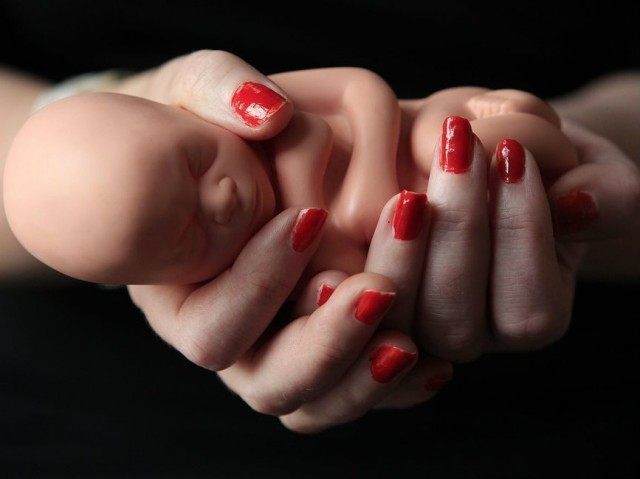Two recent stories reveal an underlying notion inherent in surrogate parenting arrangements that poisons our view of children and, hence, our culture. And that poisonous idea has spawned a mindset that has killed tens of millions.
As the New York Post reported, Melissa Cook is a California woman who was hired by a Georgia man to be a surrogate mom. Brittneyrose Torres, another California woman, also entered into a surrogacy agreement.
Ms. Cook was implanted with three embryos created by in vitro fertilization; Ms. Torres with two, one of which became twins. Both women are now carrying triplets and neither of the parties with whom they contracted are pleased.
In both cases, genetic parents want the surrogate mom to abort one of the babies she’s carrying. Triplets are not what they “ordered.” And therein lies the mindset problem.
When we, for instance, purchase a shirt online and then receive the wrong size, the wrong color, or the wrong quantity, we return the order and the mistake is corrected. But there’s no return policy for unborn babies. We can’t just put them back on a storage shelf. They are living human beings. We have one of two choices – let them live or kill them.
The genetic parents in the Cook and Torres stories allegedly are pressuring the women to choose the latter option. Of course, they don’t use the term “kill.” In the Orwellian lexicon of the abortion industry, they use the term “selective reduction.” The mothers are expected to decide or be told which of the children should be eliminated and which should live.
All too often in our society, an unborn child is not viewed as a gift to be cherished, but as an item to be procured. Our thoughts are not for the child, but for ourselves. If we’re not ready to accept the delivery of that child, we treat him or her like an “it.”
In the last few years, we’ve seen stories in the news about the remains of aborted babies being used for energy to heat homes and hospitals. Right now, in Ohio, the state attorney general’s office says Planned Parenthood is sending aborted babies’ bodies to a landfill across the state line. And, of course, after months of undercover investigations, we know that that’s not all Planned Parenthood does with aborted babies.
The abortion industry has spent a lot of time and money trying to convince us that unborn babies aren’t babies – they’re “products of conception.” And products, of course, only have value if we want them.
Which brings us back to Ms. Cook and Ms. Torres.
They don’t see the children they’re carrying as items from a catalog. They see them as children.
Melissa Cook told the Post, “They are human beings. I bonded with these kids. This is just not right.” Brittneyrose Torres said, “We would never want to abort a baby’s life.”
Even though these surrogates have participated in a process that separates reproduction from the laws of God and nature, they have not separated themselves from their roles as nurturers and protectors of the babies they carry. For this, no one will ever be more grateful than those babies or the people they will love.
Not every child carried by a surrogate is so fortunate, however. Surrogacy, like abortion, is fraught with problems because it contradicts the natural order. Surrogacy, like abortion, results in innocent people perishing because it regards them as commodities. Surrogacy, like abortion, invites us to play God, an invitation we are not equipped to accept.
Father Frank Pavone is national director of Priests for Life, president of the National Pro-Life Religious Council and the author of “Abolishing Abortion” (Thomas Nelson, 2015)

COMMENTS
Please let us know if you're having issues with commenting.